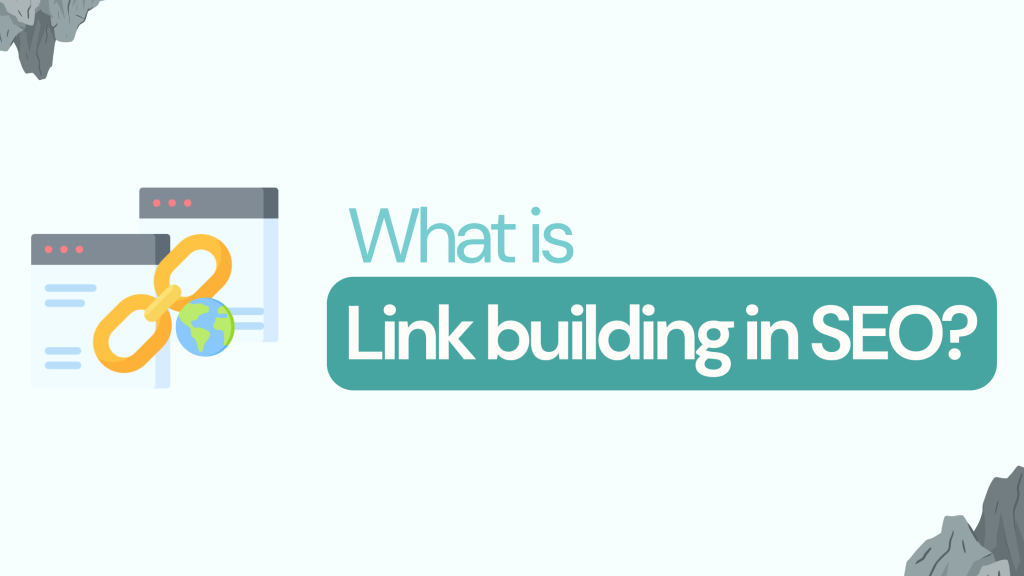Have you ever wondered why some websites consistently outrank yours in search results, even when you’re confident your content is superior? The secret might lie in a powerful SEO strategy called link building. But what exactly is link building, and how can it transform your online presence?
We’re about to embark on a journey through the world of link building – a crucial aspect of SEO that can make or break your website’s search engine performance. Whether you’re a seasoned digital marketer or a small business owner dipping your toes into the vast ocean of SEO, this guide will equip you with the knowledge and tools you need to master the art of link building.
What is Link Building?
At its core, link building is the process of acquiring hyperlinks from other websites to your own. These links act as votes of confidence, telling search engines that your content is valuable, credible, and worthy of citation. But it’s not just about quantity – the quality and relevance of these links play a crucial role in determining your site’s authority and search engine rankings.
Think of link building as networking for your website. Just as you’d build professional relationships to advance your career, your website needs to forge connections with other reputable sites to climb the search engine ladder.
Why is Link Building Important?
You might be wondering, “Is link building really that crucial?” The short answer is a resounding yes. Here’s why:
- Improved Search Engine Rankings: Google and other search engines use links as a primary factor in determining the quality and relevance of a website.
- Increased Referral Traffic: Quality links from high-traffic sites can drive targeted visitors to your website.
- Brand Building: Being associated with authoritative sites enhances your brand’s credibility and visibility.
- Relationship Building: The process of link building often leads to valuable partnerships and collaborations.
In fact, a study found that the number of domains linking to a page correlates with rankings more than any other factor. This underscores the undeniable importance of link-building in any comprehensive SEO strategy.
The Anatomy of a Quality Backlink
Not all links are created equal. To truly benefit your SEO efforts, you need to focus on acquiring high-quality backlinks. But what makes a backlink “high-quality”? Let’s dissect the anatomy of a valuable link:
- Relevance: The linking site should be topically related to your content.
- Authority: Links from respected, high-domain-authority sites carry more weight.
- Placement: Links within the main content are generally more valuable than those in footers or sidebars.
- Anchor Text: The clickable text should be descriptive and relevant to the linked page.
- Dofollow Status: “Dofollow” links pass SEO value, while “nofollow” links typically don’t.
Remember, one high-quality link can be worth more than dozens of low-quality ones. It’s not just a numbers game – it’s about building a network of meaningful connections.
Link Building Strategies That Work
Now that we understand the importance and characteristics of quality links, let’s explore some effective strategies to build them:
1. Create Link-Worthy Content
The foundation of any successful link building campaign is exceptional content. Create resources that are so valuable, informative, or entertaining that other sites naturally want to link to them. This could include:
- In-depth guides and tutorials
- Original research and data
- Infographics and visual content
- Tools and calculators
2. Guest Blogging
Guest blogging remains one of the most effective ways to build high-quality links. By contributing valuable content to reputable sites in your industry, you can:
- Earn authoritative backlinks
- Increase your brand visibility
- Establish yourself as an industry expert
When pursuing guest blogging opportunities, focus on quality over quantity. One guest post on a highly respected site can be worth more than dozens on low-quality blogs.
3. Broken Link Building
This strategy involves finding broken links on other websites and suggesting your content as a replacement. It’s a win-win situation: you help the site owner improve their user experience, and you gain a valuable backlink.
To implement this strategy:
- Use tools like Ahrefs or Check My Links to find broken links on relevant websites.
- Create or identify content on your site that could serve as a suitable replacement.
- Reach out to the site owner, informing them of the broken link and suggesting your content as an alternative.
4. Skyscraper Technique
Coined by Brian Dean of Backlinko, the Skyscraper Technique involves:
- Finding popular content in your niche
- Creating something even better
- Reaching out to sites linking to the original content and suggesting your improved version
This technique can be incredibly effective. In one case study, we saw a 315% increase in organic traffic after implementing the Skyscraper Technique for just one piece of content.
5. Resource Page Link Building
Many websites maintain resource pages that link out to valuable content on a particular topic. Identify these pages in your niche and reach out to the site owners with your relevant, high-quality content.
Pro tip: Use search strings like “keyword + “helpful resources” to find potential resource pages.
Common Link Building Mistakes to Avoid
While building links, it’s crucial to steer clear of tactics that could harm your SEO efforts. Here are some common pitfalls to avoid:
- Buying Links: Purchasing links violates Google’s Webmaster Guidelines and can result in penalties.
- Over-Optimized Anchor Text: Using the same keyword-rich anchor text repeatedly can appear unnatural and trigger spam filters.
- Ignoring Relevance: Links from irrelevant sites provide little value and can be seen as manipulative.
- Neglecting Link Quality: Focusing solely on quantity while ignoring the quality of links can backfire.
- Forgetting About Internal Linking: While external links are crucial, don’t overlook the power of a strong internal linking structure.
Measuring Link Building Success
To ensure your link building efforts are paying off, it’s essential to track key metrics. Here are some indicators to monitor:
- Domain Authority: Use tools like Moz to track changes in your site’s overall authority.
- Organic Traffic: Monitor increases in search engine traffic using Google Analytics.
- Keyword Rankings: Track improvements in rankings for target keywords.
- Referral Traffic: Measure the direct traffic coming from your backlinks.
- Link Quality Metrics: Use tools like Ahrefs or Majestic to assess the quality of your backlink profile.
Remember, link building is a long-term strategy. While you might see some immediate benefits, the real impact often becomes apparent over time as search engines crawl and index the new links pointing to your site.
The Future of Link Building
As search engines become more sophisticated, the future of link building lies in creating genuine value and fostering real relationships. Here are some trends to watch:
- Content Collaborations: Partnering with other brands or influencers to create mutually beneficial content.
- User-Generated Content: Encouraging customers or followers to create content that naturally links back to your site.
- AI-Powered Link Building: Using artificial intelligence to identify link opportunities and automate outreach processes.
- Voice Search Optimization: Building links that support voice search queries and featured snippets.
As we move forward, the focus will increasingly shift towards creating a natural, diverse, and high-quality link profile that truly reflects your site’s value and authority in your niche.
Conclusion: Your Link Building Journey Starts Now
Link building is not just a tactic; it’s an art form that requires creativity, persistence, and strategic thinking. By focusing on creating valuable content, building genuine relationships, and leveraging the strategies we’ve discussed, you can create a powerful link profile that boosts your search rankings and drives sustainable organic traffic to your site.
Remember, the journey of link building is a marathon, not a sprint. Start implementing these strategies today, and you’ll be well on your way to SEO success.
Ready to take your link building efforts to the next level? We’d love to hear about your experiences and challenges. Share your thoughts in the comments below, or reach out to us for personalized advice on crafting a link building strategy that works for your unique needs.

